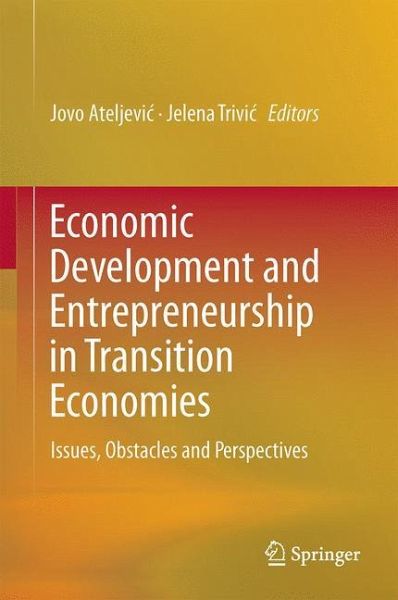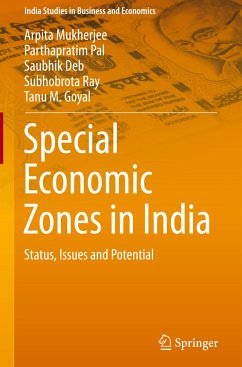
Economic Development and Entrepreneurship in Transition Economies
Issues, Obstacles and Perspectives
Herausgegeben: Ateljevic, Jovo; Trivic, Jelena

PAYBACK Punkte
38 °P sammeln!
This book contributes to a better understanding of entrepreneurship in transition economies. Current literaturereflects the more traditional schools of thought on entrepreneurship, which areinfluenced by the Western perspective, and fail to fully address the scenarioin transition economies. There is a broad consensus among academics, policymakers, and practitioners that a fundamental cause of difficulties experiencedby most economies in transition has been the fact that reform has not been accompaniedby the creation of new, private businesses, and particularly SMEs. This isespecially evident i...
This book contributes to a better understanding of entrepreneurship in transition economies. Current literaturereflects the more traditional schools of thought on entrepreneurship, which areinfluenced by the Western perspective, and fail to fully address the scenarioin transition economies. There is a broad consensus among academics, policymakers, and practitioners that a fundamental cause of difficulties experiencedby most economies in transition has been the fact that reform has not been accompaniedby the creation of new, private businesses, and particularly SMEs. This isespecially evident in states created in Europe after the dissolution of theSoviet Union where many barriers, which were inherited from the old system,remain in place, thus inhibiting entrepreneurial progress in these countriesdespite a favorable political and economic environment. The contributions featuredin this book focus on how much progress has been achieved so far with regard tothese aspects, as well as identify which current barriers and issues still needto be resolved. Themes include innovation performance, financing, venturecapital, educational factors, and entrepreneurial learning.












